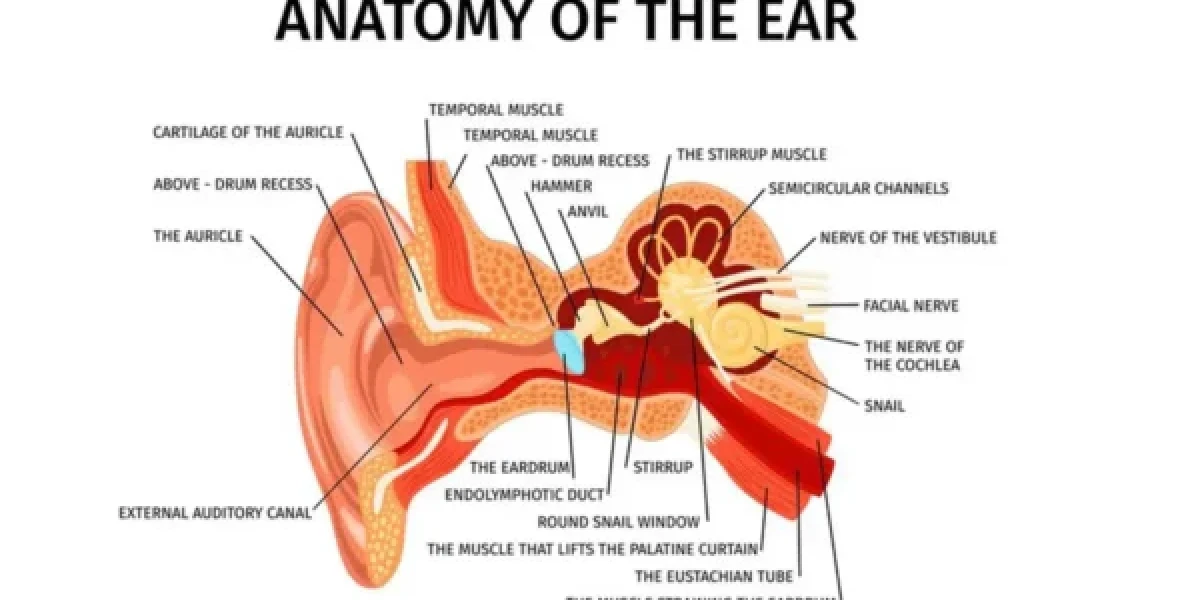Introduction
Hemophilia is a rare genetic disorder characterized by the inability of the blood to clot properly, leading to prolonged bleeding from even minor injuries. This condition can have a significant impact on an individual’s life, often requiring careful management and treatment to prevent and control bleeding episodes. The purpose of this blog post is to shed light on the lives of 10 famous individuals who have not only lived with hemophilia but have also achieved remarkable success in their respective fields.
Alex Borstein
Alex Borstein is a renowned American actress, writer, and comedian, best known for her voice role as Lois Griffin on the animated television series “Family Guy.” Beyond her successful career in entertainment, Borstein has a personal connection to hemophilia; she is a carrier of the condition, and her daughter has mild hemophilia. Despite the challenges posed by this bleeding disorder, Borstein has managed to thrive in her career, using her platform to raise awareness about hemophilia and advocate for those affected by it.

Borstein’s journey with hemophilia has been marked by her proactive approach to managing the condition and supporting her family members who also live with it. Her involvement in advocacy work and public discussions about hemophilia highlights the importance of education and understanding of the disorder. Borstein’s resilience and determination serve as an inspiration to many, proving that with the right care and support, individuals with hemophilia can lead fulfilling and successful lives. Her story is a testament to the strength and perseverance that define the human spirit in the face of adversity.💪
Richard Burton
Richard Burton was a legendary Welsh actor whose magnetic performances captivated audiences in both theater and film. His commanding presence and rich, resonant voice earned him a place among the greats of his time. Burton’s career spanned over three decades, during which he starred in 61 films and 30 plays, earning seven Academy Award nominations. Despite his public persona, Burton faced a private battle with hemophilia, a genetic disorder that impairs the body’s ability to make blood clots, a process needed to stop bleeding.
Burton’s experience with hemophilia was a deeply personal aspect of his life. He was the first Hollywood star to reveal his condition, bringing attention to a disorder that was not widely discussed at the time. Alongside his then-wife Elizabeth Taylor, Burton established the Richard Burton Hemophilia Fund in 1964, demonstrating their commitment to finding a cure and supporting those affected by the condition. His ability to cope with hemophilia while achieving monumental success in his career is a testament to his resilience and serves as an inspiration to many.
Alex Dowsett
Alex Dowsett is a British professional cyclist renowned for his incredible achievements on the track and road. As a former world record holder in the individual pursuit and a six-time National Time Trial Champion, Dowsett has proven himself to be a formidable force in the cycling world. However, what makes his story truly remarkable is his journey with hemophilia. Diagnosed with severe hemophilia A at just 18 months old, Dowsett has defied the odds to become the only known elite professional sportsman with the condition.
Dowsett’s determination to excel in the world of cycling, despite the risks associated with hemophilia, is nothing short of inspiring. He has used his platform to raise awareness of the condition and to advocate for others living with it. In 2016, he founded the charity Little Bleeders to support and encourage young people with bleeding disorders to lead active and fulfilling lives. Dowsett’s story is a powerful example of how perseverance and passion can drive one to achieve greatness, even in the face of adversity.💪
Barry Haarde
Barry Haarde was an American cyclist and a beacon of hope for the hemophilia community. Born with severe hemophilia A, Haarde faced numerous challenges, including contracting HIV and hepatitis C through blood transfusions. Despite these hardships, he became a symbol of resilience and determination. Haarde’s passion for cycling led him to embark on long-distance rides across North America, a feat that many thought impossible for someone with his condition. His “Wheels for the World” campaign was not just a personal triumph; it was a journey that raised over $200,000 for hemophilia charities.
Haarde’s accomplishments in long-distance cycling are nothing short of extraordinary. He made history in 2012 as the first person with hemophilia to bike across the country, covering 3,667 miles through 10 states and Canada in 50 days. Over six years, he rode more than 20,000 miles, inspiring countless individuals along the way. His efforts to raise funds for hemophilia research and support organizations like Save One Life have left a lasting impact on the community. Barry Haarde’s legacy continues to motivate those living with hemophilia to pursue their dreams and advocate for a better future.

Jesse Schrader
Jesse Schrader is an American musician whose life story resonates with courage and inspiration. Born with hemophilia A, Schrader has navigated the complexities of managing his health while pursuing his passion for music. His journey with hemophilia has been one of constant vigilance, but it has not deterred him from achieving his goals. Schrader’s talent and dedication have allowed him to carve out a unique space in the music industry, where he uses his voice to raise awareness about the condition.
Schrader’s advocacy extends beyond his music. He is a patient advocate for CSL Behring and has shared his experiences and advice with young athletes at the Gettin’ in the Game Junior National Championship, an event for kids and teens with bleeding disorders. His story is a powerful reminder that living with hemophilia does not define one’s potential or limit one’s ability to make a meaningful impact. Jesse Schrader’s commitment to raising awareness through his music and advocacy work continues to inspire and uplift the hemophilia community.
Queen Victoria and Alexei Nikolaevich
The legacy of Queen Victoria, the British monarch who reigned from 1837 to 1901, extends beyond her political influence to a genetic marker that profoundly affected her descendants and the course of European history. Queen Victoria was a carrier of hemophilia, a blood disorder that prevents normal clotting and can lead to severe bleeding from minor injuries. This condition, often referred to as “the royal disease,” was passed down to her son, Prince Leopold, and through her daughters to the royal families of Spain, Germany, and Russia.
One of the most notable descendants to inherit hemophilia was Alexei Nikolaevich, the son of Tsar Nicholas II and Empress Alexandra of Russia. Born in 1904, Alexei’s life was marred by the condition, which limited his activities and became a source of deep concern for the royal family. The impact of hemophilia on Alexei’s health and the desperate attempts of his parents to find a cure, including their reliance on the mystic Grigori Rasputin, played a role in the declining public perception of the Romanov dynasty.
The presence of hemophilia in the royal families spurred medical advancements as doctors sought to understand and treat the condition. It also highlighted the importance of genetics in medicine, leading to increased research and awareness of hereditary diseases. The story of Queen Victoria’s descendants with hemophilia is a poignant reminder of the vulnerability that even the most powerful individuals share when it comes to health and the human condition.
Ryan White
Ryan White’s story is a testament to the power of resilience and advocacy in the face of adversity. Born in 1971, Ryan was diagnosed with severe hemophilia A, a condition that required regular blood product infusions for treatment. In 1984, at the age of 13, Ryan contracted HIV from a contaminated factor VIII blood treatment. Despite being given only six months to live, he defied expectations and became a national symbol for HIV/AIDS awareness in the United States.
Ryan’s struggle extended beyond his health as he faced discrimination and was barred from attending school due to fears and misconceptions about AIDS. His legal battle to return to school and the subsequent media attention turned him into an advocate for AIDS research and public education. Ryan’s courage and determination helped shift the perception of AIDS in the U.S. and highlighted the need for compassion and understanding for those affected by the disease.
Ryan White’s legacy continued after his death in 1990, with the passage of the Ryan White CARE Act, which provided funding for HIV/AIDS treatment and support services. His story remains an enduring example of how one individual’s fight for justice can lead to significant societal change and inspire hope in the face of seemingly insurmountable challenges.
5 Tips for Living Well With Hemophilia A
Living with Hemophilia A requires careful management, but it doesn’t have to limit your quality of life. Here are five practical tips to help you thrive:
- Manage Physical Activities: While it’s important to stay active, choose low-impact exercises that minimize the risk of injury, such as swimming, cycling, or walking. Always wear protective gear and avoid contact sports.
- Maintain a Healthy Diet: A balanced diet can help maintain a healthy weight, which reduces stress on the joints. Incorporate iron-rich foods to support blood health and consider supplements if recommended by your healthcare provider.
- Seek Emotional Support: Living with a chronic condition can be challenging. Contact friends, family, or support groups for encouragement. Professional counseling can also be beneficial.
- Stay Informed About Treatment Options: Medical advancements are continually being made. Stay up-to-date with the latest treatments and discuss them with your healthcare team to determine what’s best for you.
- Advocate for Yourself: Be proactive about your health care. Communicate openly with your doctors, ask questions, and make informed decisions about your treatment plan.
Conclusion
The stories of famous individuals with hemophilia are a testament to the resilience of the human spirit. From Queen Victoria’s descendants to Ryan White’s advocacy, each narrative offers a unique perspective on living with this condition. These individuals have not only managed their health challenges but have also excelled in their respective fields, leaving a lasting impact on the world.
Let their achievements inspire you to live your life to the fullest and to advocate for awareness and support within the hemophilia community. By sharing these stories, we can foster a greater understanding of hemophilia and encourage those affected to lead empowered, fulfilling lives.
FAQ's
01. Which celebrities have hemophilia?
Celebrities with hemophilia include comedian and actress Alex Borstein, professional baseball player Jesse Shrader, and cyclist Barry Haarde.
02. How is hemophilia famous in history?
Hemophilia is famous in history for being a genetic disorder that affected European royalty, particularly the descendants of Queen Victoria.
03. Is hemophilia A Royal blood?
Hemophilia is sometimes referred to as “Royal blood” because it was prevalent among European royal families in the 19th and 20th centuries.
04. Does Prince William have hemophilia?
Prince William does not have hemophilia. The condition no longer affects the British Royal family.
05. Does Queen Elizabeth carry hemophilia?
Queen Elizabeth did not carry hemophilia. She is a direct descendant of King Edward VII, who did not have the condition.
06. What disease did the Queen have?
Queen Elizabeth II had a history of health issues, including mobility problems and testing positive for COVID-19, but the exact disease she had has not been disclosed.
07. Which royal died recently?
The most recent royal death was Queen Elizabeth II, who passed away at the age of 96.
08. What were Queen Elizabeth's last words?
Queen Elizabeth II’s last words to the public were a message of condolence to the people of Canada following the attacks in Saskatchewan.
09. Did Queen Elizabeth have leukemia?
There were speculations that Queen Elizabeth II had leukemia or bone marrow cancer, but these were not confirmed by official sources.
10. Who is the prince with hemophilia?
The prince with hemophilia was Prince Leopold, Duke of Albany, the fourth son of Queen Victoria.
11. What singer has a hemophilia?
I couldn’t find information on a singer with hemophilia in the provided search results.
12. Which royals had hemophilia?
Royals who had hemophilia included Prince Leopold, Duke of Albany, and through Queen Victoria’s lineage, it spread to the royal families of Spain, Germany, and Russia.
Important Notice:
The information provided on “health life ai” is intended for informational purposes only. While we have made efforts to ensure the accuracy and authenticity of the information presented, we cannot guarantee its absolute correctness or completeness. Before applying any of the strategies or tips, please consult a professional medical adviser.













